Kate's Journey
Our oldest daughter taught us all many lessons while dealing with ADHD, bipolar
Last Friday, Jill and I had dinner with our three children and son-in-law. Ben and Emma had driven to Virginia from New York City, so we got together with Kate and Matthew before the twins left to visit oldest brother, Nick, and his wife, Conner, in Durham, N.C.
Ben and Emma wanted to see where Kate works — she’s an after-school director at a mixed martial arts studio about 30 minutes from us — and visit with her and Matt, so Jill and I met the four of them at the restaurant.
Family post dinner — February 2022
Over the next two hours, we reminisced about many things, with lots of laughs and a few tears shed. The kids talked about how their relationships have evolved; apparently, Emma and Kate —aka “oil” and “water” in childhood — shared a secret that the rest of us had just found out earlier that day.
It was a remarkable — and overwhelming — evening. Seeing these young adults talking, laughing, hugging, and sharing as siblings and friends was one of the most beautiful experiences I’ve had as a parent.
They’ve all come a long way. Especially our oldest daughter.
‘Ironic Foreshadowing’
Kate has packed a lot into her 25-year journey to the present, struggling mightily at times to find her way. Born genetically caffeinated, as I call it, she was diagnosed with ADHD at age 5 and bipolar by age 9. Adolescence was a nightmare as we all — Kate, her siblings, Jill, and I — fumbled through the present and sought to look at the big picture.
I write to process, and throughout much of Kate’s life, much of that processing was spent trying to understand the best way to be her parent. Working on this piece, I compiled the essays I published and posted over the years; they total more than 15,000 words.
Kate, age 2
Here’s an excerpt from a summer 1998 essay, when she was just 18 months old. Today, its title would be “Ironic Foreshadowing.”
It’s no wonder my daughter Katharine made it to the “terrible twos” several months early. After all, she walked at nine months and had twin siblings (Ben and Emma) before she turned a year.
Part of it is the circumstance; we’re exhausted. Going to the bathroom can require an act of Congress and a signed letter from the president. And with Katharine in her present phase, you never know what you’ll find when you get there.
One minute, she’s wonderful, working the room at daycare like a career politician.
“Hi, I’m Katharine Cook, candidate for leader of the toddler party. My platform is more beanie weenies, less Spam for all. Glad to meet you.”
The next is like listening to an air raid siren, battle lines having been drawn when I tried to take something out of her hands.
“This is a test of the Emergency Broadcast System. For the next 60 seconds, I’m going to let out a scream that will make you think the entire area is under nuclear attack. Please stand by.”
And so it goes.
‘Eating Steak Through a Straw’
As advocates working to remove the stigmas around mental illness, my wife and I are open about our challenges as parents. In the essays on Kate, I wrote about her struggles, our difficulty in trying to provide her with the support she needed, and how we tried to help her siblings (Ben, Emma, and Nick) understand what she faced.
Kate, Ben and Emma — ages 5, 4, and 4
Kate was accepted into a gifted program between second and third grade. She could hold it together at school, but home was another story. In fifth grade, she hit a wall academically as we struggled to control the mood disorder. The academic struggles would continue through middle school and high school.
Fall 2008: At times, my daughter talks in a rat-a-tat-tat cadence, tapping from topic to topic with little rhyme and less reason. So much information is being processed that she can’t get the words out fast enough. In quiet moments, when she is acutely self-aware, she says her brain is constantly pounding because she has so many thoughts to sort through. She calls it "eating steak through a straw."
Summer 2009: Having a bipolar child with a AAA membership (anxiety, ADHD, and adolescence) is one of the most difficult challenges I face as a parent. Day to day, hour to hour, sometimes minute to minute, we never know which person will show up.
Questions, questions, so many questions. Is this sweet, vulnerable child overwhelmed by faulty wiring in her brain? The ditzy, funny, engaging 12-year-old girl who can’t stop talking? The child who watches the clock almost obsessively to ensure that you get her to school on time, yet can’t tell you what day it is?
Is it the little girl who can’t stand to see an animal stuck outside in the rain, or the enraged, angry, out-of-control person who locks herself in the bathroom, curls up in a ball, and screams at the top of her lungs for 30 minutes? Or is it, not so simply, all of the above?
Learning About ‘It”
An excerpt from December 2009, days before Kate turned 13:
The collateral damage from Kate’s explosive incidents forces everyone to reflect on what has just happened. Could anything have been done to stop it? Or were we just delaying the inevitable?
After one of these outbursts, I can never sleep. I have to process what just happened and my role in it. If I’m being honest, truly honest, I don’t always come out looking so great. Even as much as I care about and love my children, sometimes I provoke the confrontation just to get this part over with. In the heat of the moment, I have difficulty in separating the child and the illness, which we have dubbed “It.”
If parenting a child is difficult, then parenting “It” is next to impossible.
The many faces of Kate — March 2010
November 2010: Kate’s doctor says teens lose 10 years of maturity when they become prepubescent and don’t get it back until the hormone surges slow down several years later. I can’t wait for that to happen with all of my kids.
May 2011: Bipolar is an octopus, metaphorically speaking. It is not self-contained; if anything, it demands always to be the center of attention. You can tiptoe around a mood disorder all you want, but it still will strike out, often for the most minuscule things at the most inopportune times. Think of it this way: ’Roid rage has nothing on an ill, pissed-off 14-year-old girl in a very dark place.
Kate knows her internal spin cycle has been out of control. She no longer thinks her psychiatrist is effective and wants someone different. We’ve known her current mix of meds wasn’t working; in fact, her new doctor said her ADHD could have been misdiagnosed. After the twitching/convulsive episode last week, she begged us for help, saying she knows something is wrong.
That’s what we’ve been dealing with for the past 10 days, and we’re hoping that we’ve got her medication sorted out — for now. Still, other issues must be addressed through individual and family counseling as she works to find that elusive emotional equilibrium.
In general, girls tend to internalize their emotions. Kate has suppressed hers for so long that the only way they know how to come out is in a rage. She has to be able to identify when she is upset or unhappy and learn how to deal with it. She has to learn how to be accountable for her actions — in school and at home.
The problem is that she speaks in general terms, too general, really, if she wants help. The art of in-depth debate and conversation, which brings me great joy in this life, escapes her because she has no patience for it. And her coping mechanisms are so deep, so embedded, that it will take a very long time for her to find new ones.
There are no magic wands. That’s for sure.
Hugging her mother — Fall 2013
November 2013, after Kate’s third hospitalization: There has always been a stigma of shame, along with a stinging level of insensitivity, around people who have mental health issues, especially among our young people. It's only when tragedy occurs that attention seems to be brought to the topic. Ironically, research has shown that the mentally ill are more likely to be victims than perpetrators.
Bipolar and ADHD do not have symbols, like pink ribbons or the faces of cute children, that we can rally around. Instead, those symbols — the faces of people like our beautiful daughter — remain largely anonymous.
March 2015 essay, when Kate was a high school senior: What people don’t seem to understand is that mental illness is chronic, not cured. It’s only suppressed and/or managed to the best of an individual’s ability. As a parent, it’s a never-ending waltz — 1-2-3, 1-2-3, 1-2-3 — that becomes a loop of expectations and hopes vs. realities.
Mental illness is not something you necessarily see, except through actions and reactions you are forced to deal with. It’s most effective when it eats away at a person silently and slowly. That’s because outbursts create awareness that something is wrong, and mental illness gets its power from its ability to mask and deceive.
Our situation as parents is not unique. Chances are likely others you know deal with this, too. What we’ve got to do is talk about the sad state of mental health care in this country and do something about it.
‘The Talk’
When each of our kids approached their high school graduation, I tried to have “the talk” with them.
No, not that talk.
This discussion was around their shared responsibility as siblings and as the adult children of parents. The “contract of responsibility” we agreed to upon leaving the hospital required us to feed, clothe, educate, and equip them with the skills necessary to be successful in life. Once they became adults, I said, that contract was no longer ironclad.
As parents, we now had choices. As adult children, they had responsibilities for their relationships with us and with their siblings.
That may sound harsh, but it’s true. And given the circumstances of raising the collective of four — three full-time and one part-time — it was necessary. Fulfilling that “contract of responsibility” was the toughest thing I’ve ever faced. At one point, we had four kids in four schools in three states. One was in New York or off touring the country, one with emotional/mental challenges, and two had to deal with the collateral ping-pong of their siblings while trying to find their own way.
It wasn’t easy. But parenting, and life, rarely are.
Graduation day — June 2015
Kate finished high school in 2015, her post-graduation plans shifting as often as the colors of her hair. Desperately wanting to leave Virginia, she moved to Florida with our reluctant endorsement. If we tried to stop her, we decided, she would resent us forever. As a young adult, she had to learn on her own.
Florida lasted only a few months. Kate went off her meds completely, thinking she could control “It” alone, and spiraled. Jill flew down to get her and brought her home, a short time before Emma was scheduled to graduate from high school.
Adulting is Hard
Back home, Kate bounced from job to job, still not wanting to be on her meds and preferring to self-medicate to deal with her depressed state. In some respect, it was the opposite of the volatility of her adolescence.
For us, the final straw occurred when Jill and I were at a conference in Las Vegas. We received a call about a party that was taking place at our house, even though we had given Kate strict instructions about having others over. Jill wanted to fly home then and there; together, we decided not to do so. Locked out of our house, thanks to neighbors who deadbolted the doors and cleaned up the mess, Kate would have to deal with the consequences when we returned.
When we got home two days later, the three of us sat down to again talk things through, but this time it was different. Kate was now, technically, an adult. The gravity of that, and the recognition that our relationship was at a crucial point, was lost on no one.
We agreed to let Kate stay in her room and eat whatever was in the refrigerator. She was responsible for anything else — car, phone, spending money — a tough stance to take with a soon-to-be 20-year-old, especially one who didn’t then have a job. We also gave her a time frame for when her rent-free existence would have to change.
Remarkably, she agreed. And even more remarkable, she followed through, taking ownership over her ADHD/bipolar and gradually displaying the maturity we hoped the experience and scars of a rocky childhood would provide. She went back on her meds, got a job at a preschool, moved out with roommates, and met Matthew, the partner who would provide the crucial piece of stability she needed.
Kate with Matt on their wedding day, and posing with Emma and Jill in a pre-ceremony selfie — March 6, 2020
The End … For Now
For our family, the pandemic started with Kate’s wedding. On March 6, 2020, two years ago today, our oldest daughter got married in a small outdoor ceremony at the Fairfax County Courthouse near our home in Virginia.
With biological and extended families in attendance, Kate and Matthew’s wedding was almost postponed or moved indoors because of the threat of afternoon storms. But we went ahead even as the rains came, followed by wind and hail that bounced off our daughter’s wedding dress.
2020 was telling us something. Within days, events across the U.S. and around the world were being canceled for the foreseeable future as we moved into a collective lockdown.
But on that day, our daughter was happy and beaming, having pushed past and through her traumas and ready to enter life with her chosen person. The family gathering, which ended with dinner at a local restaurant, was a lovely evening and a sign of things to come despite the pandemonium the rest of the world has experienced.
Over these past two years, Kate has been thriving as she continues her remarkable journey. She has started boxing and is in the best physical condition of her life. She has built strong relationships with her siblings, especially Emma, which is a joy to see. All of the characteristics often left blanketed by the disorder — her innate kindness to children and strangers, her wickedly funny and offbeat sense of humor — are flourishing.
I am proud of all my children. But on this day, I could not be prouder of Kate. Happy anniversary to you, my lovely daughter. Thank you for allowing us to be part of your life.
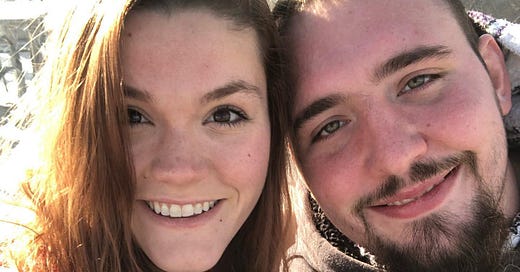


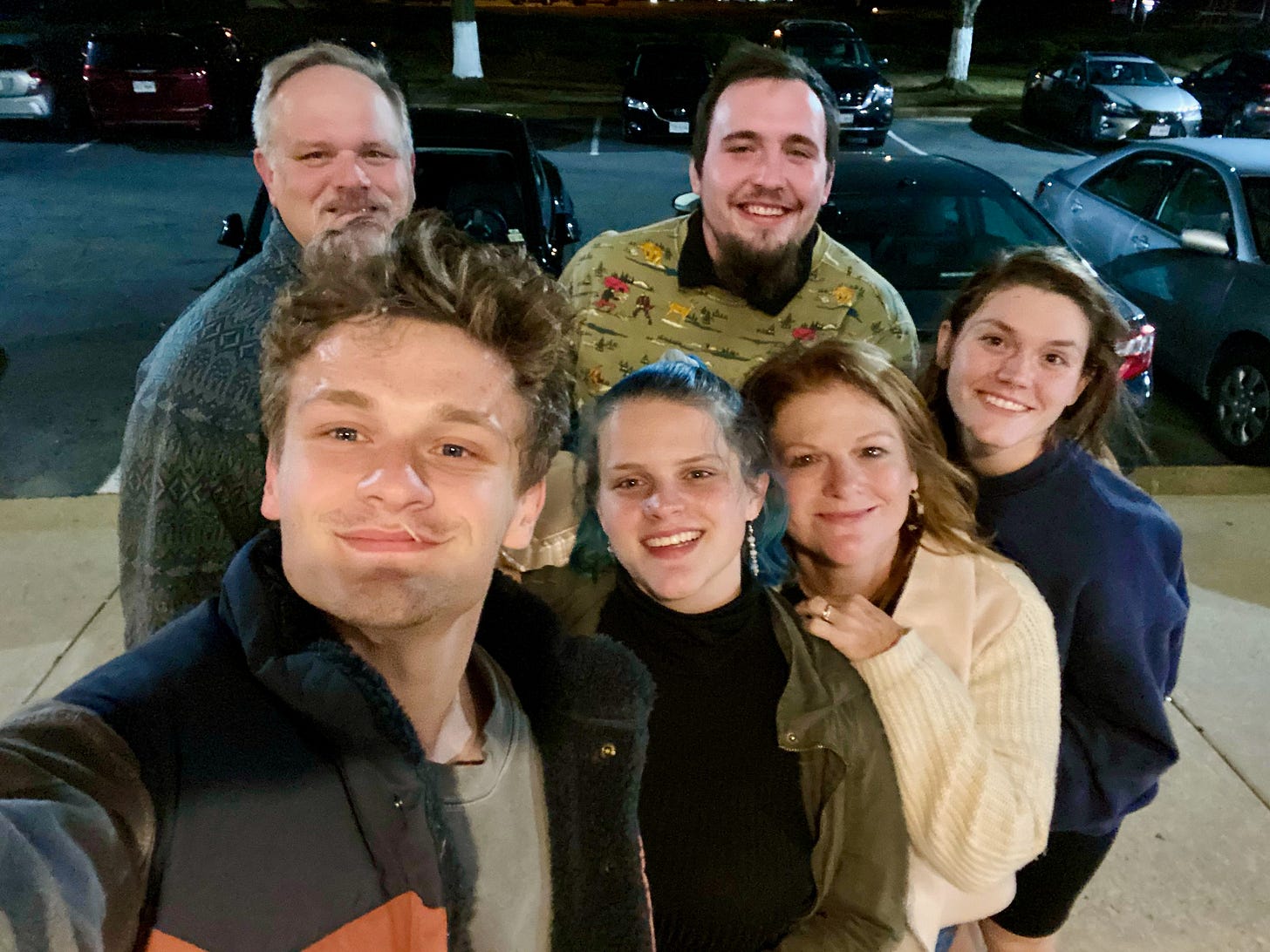
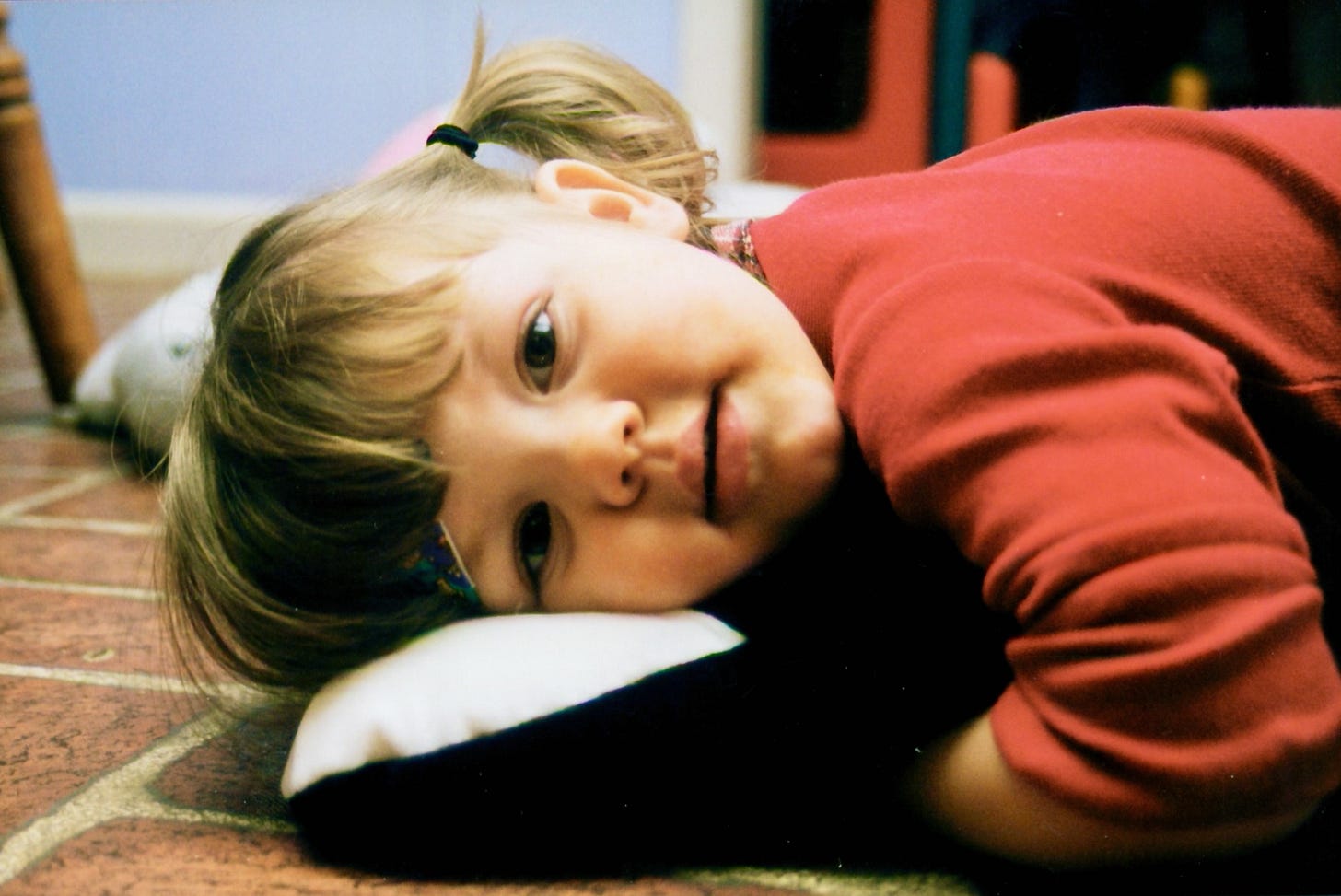
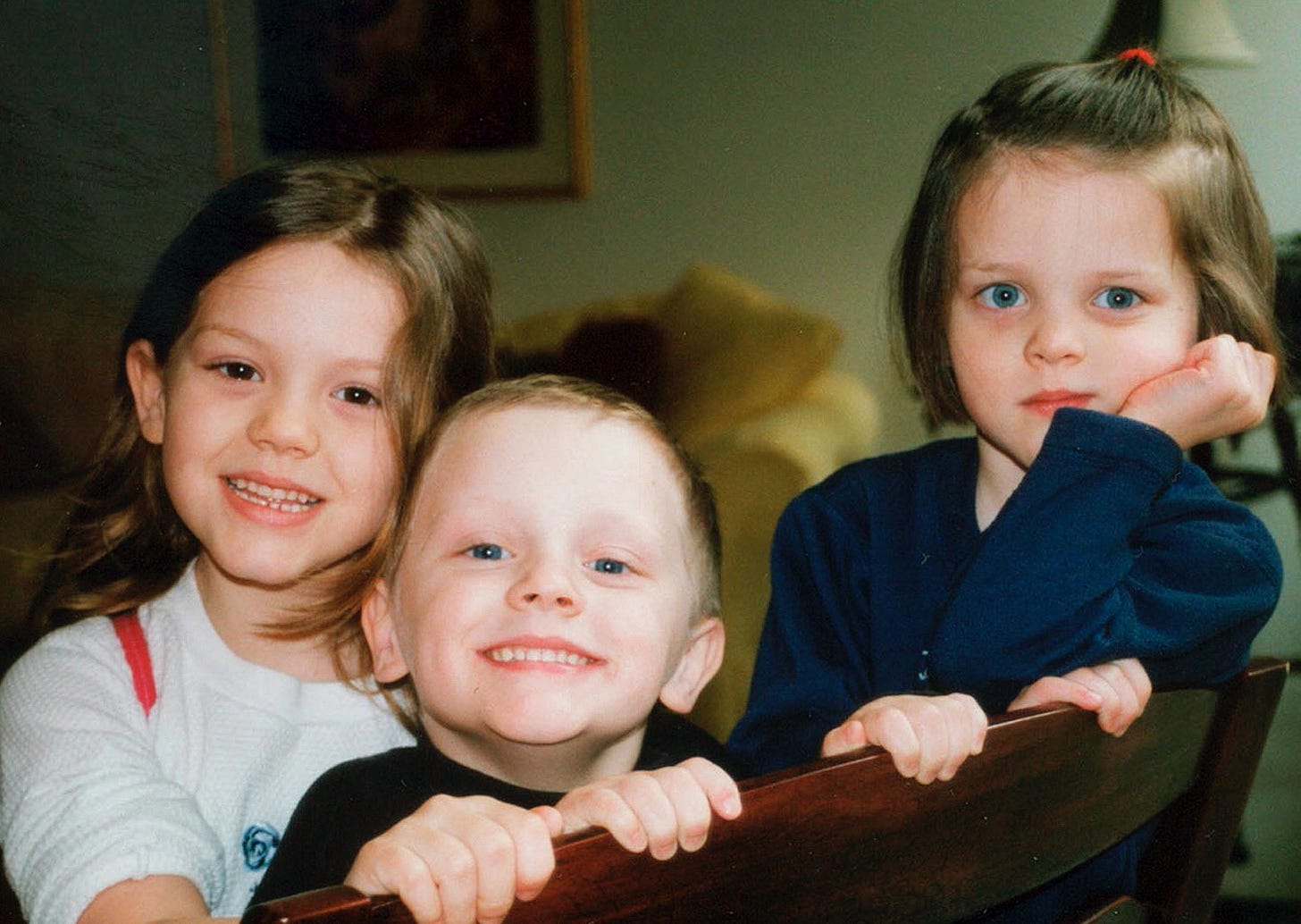
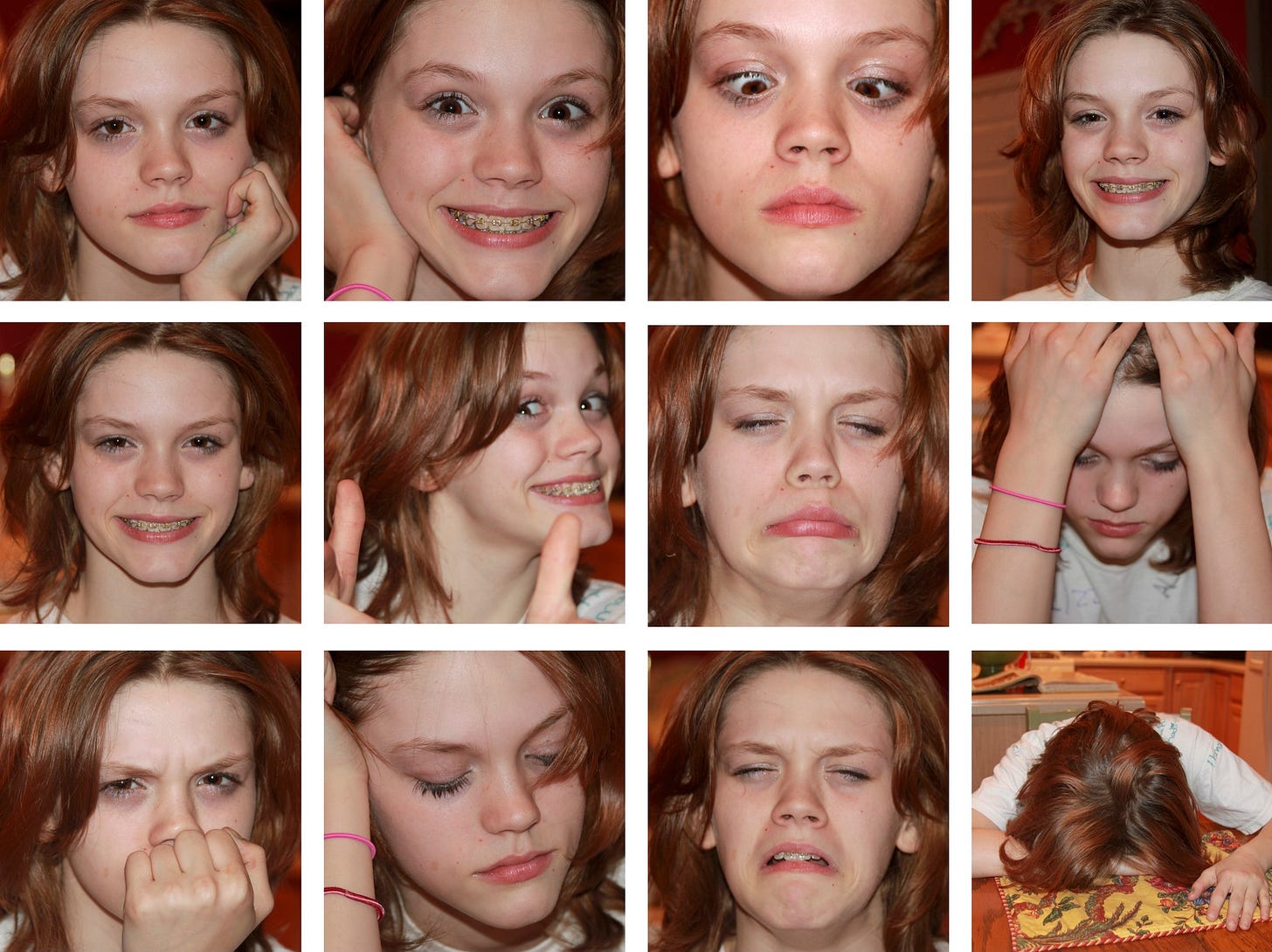
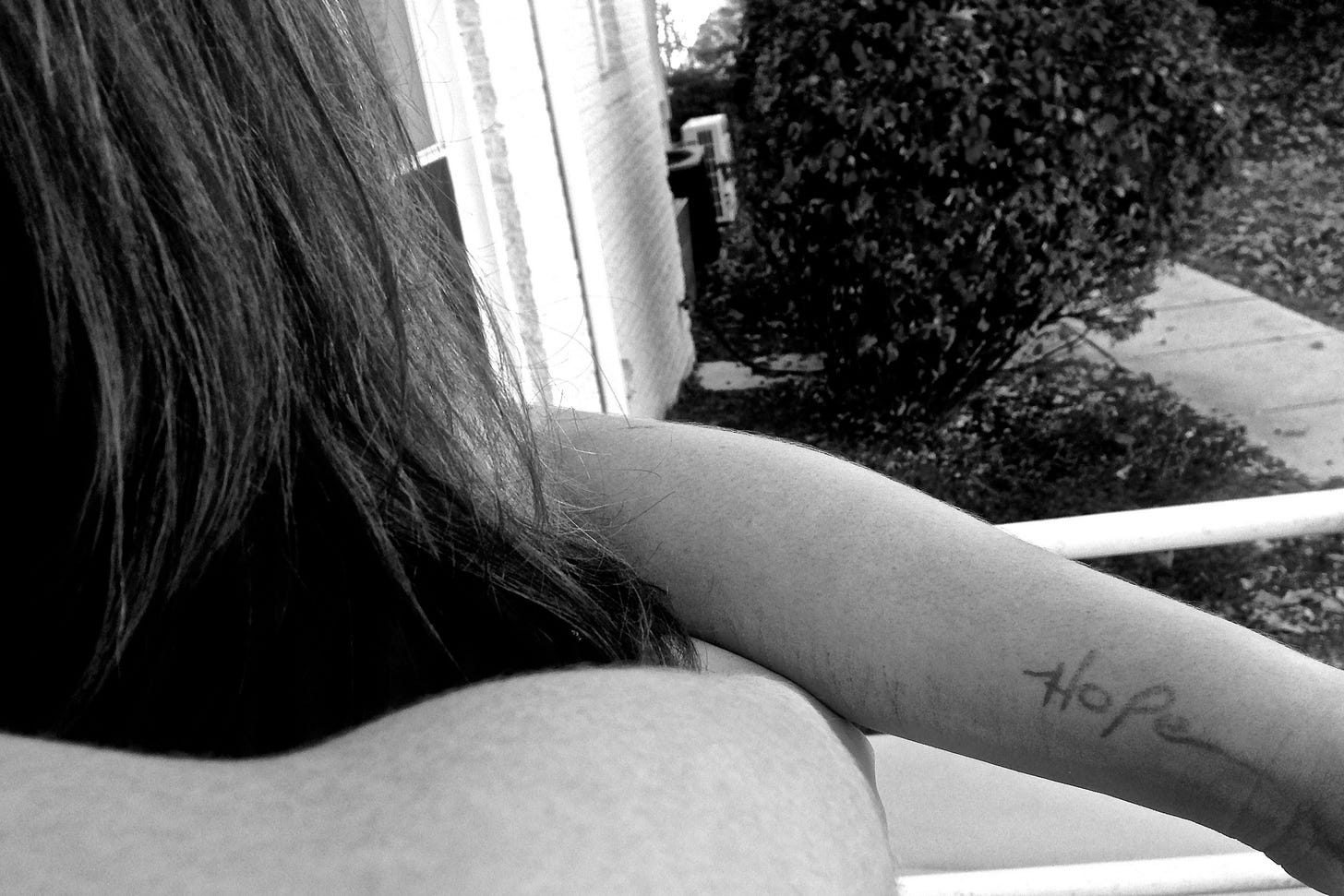

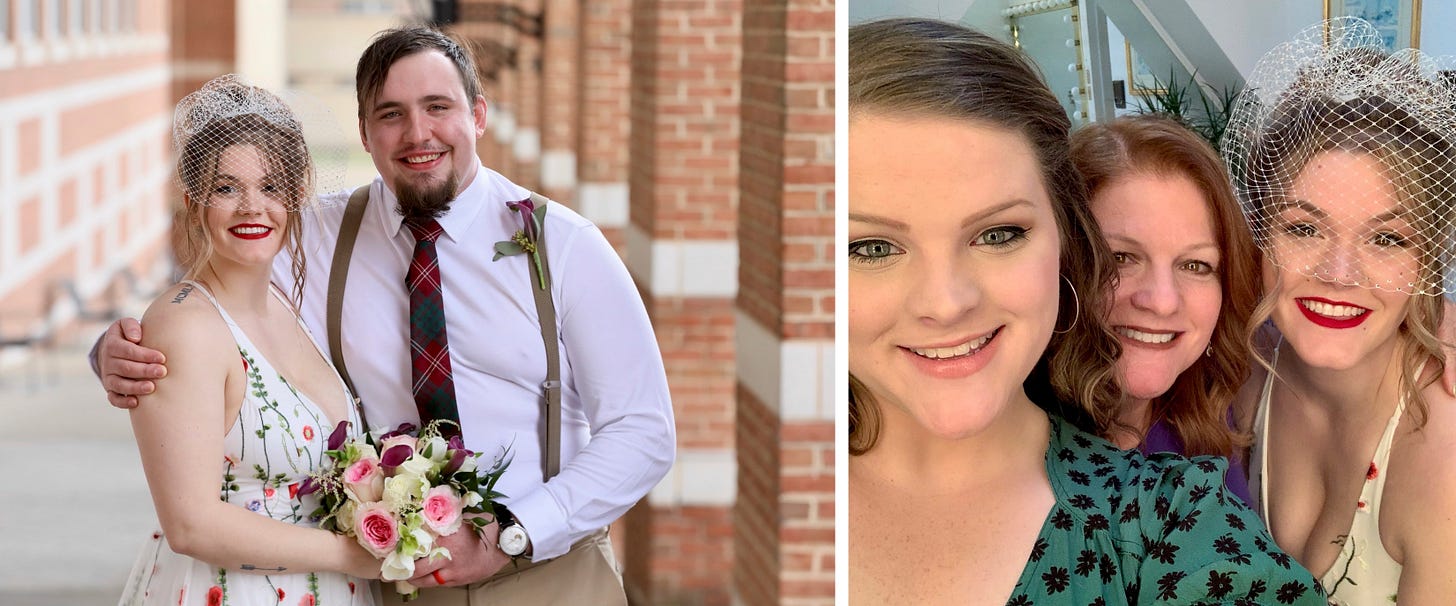

Thank you for sharing your parenting challenge and lovely photos. We love Kate and wish them both an very happy anniversary as the grow and thrive.
Thank you for writing this, Glenn. Mental illness is real and you told the story with honesty and love. Your family---every one of you---clearly came out of those hardest times as stronger, more unified people. This was very instructive for me. Kate sounds like a wonderful woman.